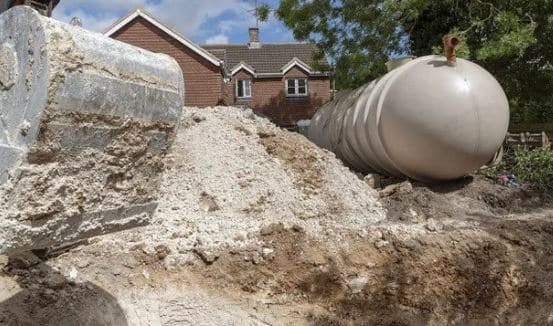
Drafting an agreement of purchase and sale to buy a property is one of the most important aspects of a REALTOR®’s role for you. In light of the intense seller’s market we were experiencing over the past couple of years, many house hunters found themselves in the precarious position of putting in offers with no conditions to better their chances of securing a home.
Buying a home is a huge responsibility and if due diligence is not feasible, you could find yourself in a difficult spot if you don’t qualify for financing as planned – or if you’ve bought a property that requires unexpected, costly repairs.
Now that the market has shifted, in most cases, buyers have once again been able to include conditions in their offers when submitting an agreement of purchase and sale. As you likely know, financing and a home inspection are the most common conditions, but they are certainly not the only one’s that should be included in an agreement of purchase and sale.
When you’re looking to buy a home using the standard form agreement of purchase and sale, there are some subject conditions or conditions precedent that you may want to include. It’s important to note the distinction.
A condition precedent establishes that certain criteria must be either waived or fulfilled, during a specific period of time, before the agreement of purchase and sale becomes legally binding. In some cases, a REALTOR® may write the offer as a condition subsequent. What this means is that the offer becomes immediately binding within a certain period of time if the buyer has not otherwise given notice. In a nutshell, writing conditions this way presumes that the conditions will be waived or fulfilled unless specified.
If you’re in the process of negotiating an offer of purchase and sale to buy a home, in addition to buyer financing and property inspection, you may should also include conditions pertaining to property title, insurance and if available, property disclosure. This is by no means a complete list, but they are some of the more common conditions.
It’s important to note that while you want to protect yourself and your investment, including too many conditions in an offer can be a deterrent to a seller, who could feel that the deal may fall apart at a later date more easily.

Let’s take look at these conditions more closely.
FINANCING – a financing clause allows time for a buyer to confirm that they will be able to obtain the mortgage they may need to finance the purchase of the property. If a buyer has a pre-approval, this is helpful but it does not guarantee that they will receive a mortgage approval, especially if anything pertaining to their personal circumstances has changed at all between applying for the pre-approval and finding a home to put in an offer on. The standard period of time to allow for this condition to be waived or fulfilled is five business days. If you’re looking at commercial properties, you want to extend this to three to four weeks.
PROPERTY INSPECTION – next to financing, a property inspection clause in an agreement of purchase and sale tends to be the next most important. Time permitting, some buyers could also invest some money in a pre-inspection if they are serious about a property but this wouldn’t be as common now that the market has shifted. A property inspection gives the buyer the chance to visit the home with a qualified property inspector to evaluate the condition of the home and be informed about any possible defects.
The primary areas an inspector will investigate is the structure of the home, electrical, plumbing, and more. As you can likely appreciate, no buyer wants to be hit with big ticket expenses after buying a home so this helps them to determine if they’d like to go ahead or not. If there are issues, a buyer may also ask the seller to remedy them before closing or negotiate a fee from the agreed upon purchase price.

TITLE – it’s important to make sure that a property you’re purchasing has a clear title. This clause allows for the review of any charges that may appear on the title such as existing or pending covenants, easements, right of ways etc. These can have a big impact on your use of the property so it’s important for a lawyer to review this in advance.
INSURANCE – this is an important requirement for a buyer, especially if you’re depending on financing to pay for the property. You also want to protect your investment, that’s a given. For this reason, you should include a fire/property insurance condition in your offer. If the property has history or components that could cause an insurance company to deem it uninsurable, this could create a huge issue for you.
PROPERTY DISCLOSURE – ok, so this condition isn’t quite as common but it could be something that a buyer would like to include. In some cases, sellers may complete something called a property disclosure statement. This will outline information that may not be obtained from research or even an inspection. If provided, these documents form part of the agreement of purchase and sale and can be relied on by a buyer if any issues that relate to the disclosure come up after closing.
SALE OF YOUR HOME – what if you find your dream home and buy before selling? There is a condition for that as well. Some sellers may not be comfortable agreeing to it however, but in a buyer’s market, it could be a condition you want to include unless you know your lender can offer you bridge financing if it takes longer than anticipated to sell your own home and your closing dates don’t match up.
SURVEY – again, this condition isn’t necessarily as common as financing, home inspections or insurance, but it could still be very important especially if you have any concerns about property boundaries. This could come into play if there are any questions about where a fence has been installed, a shed or if there have been any improvements to a property. You want to make sure that the seller has been compliant to avoid issues for yourself down the road.
When you’re negotiating conditions for an agreement of purchase and sale, the above listed are definitely among the top when it comes to order of importance. This said, they are certainly not the only ones. Now, let’s take a look at some of the other conditions that could be relevant, but may be utilized on more of a case by case basis.

STIGMA OR PSYCHOLOGICALLY IMPACTED PROPERTIES – do you believe in ghosts or paranormal activity? Would it bother you if you knew a crime had taken place on the property or if it had been used as a drug lab? Maybe – or maybe not. Either way, depending on how you feel about these matters, including a clause pertaining to stigma will require a seller to confirm that nothing of this sort had ever taken place in the home.
This said, buyers still have to take onus to investigate the property. It’s important to note that the legalities are still professing around what a seller may or may not need to disclose pertaining to the history of a property. Negotiating conditions for an agreement of purchase and sale at least lays out the buyer’s expectations regarding what is and is not important to them and there could be consequences if a seller isn’t forthcoming about relevant information.
STRATA DOCUMENTS – if you’re purchasing a strata building, then you need to consider the strata plan, bylaws, any AGM/SGM/council meeting minutes, leases, rules, reports and accounts. It’s important for you to review the overall status of the building and have a clear picture of the upcoming expenses as well as if there have been any pass complaints lodged against your potential neighbours.
UNDERGROUND OIL TANKS – this is probably not something you would normally think about when you’re considering conditions for an agreement of purchase and sale but there are huge environmental and financial consequences if this is something that comes up unforeseen later on. More often than not, these heating tanks are buried in the ground, so they may not necessarily be something you notice right away. If the property has one, these tanks have the potential to leak oil and contaminate the property as well as any adjacent properties. Having a scan with the best available technology will give you, as the buyer, the opportunity to find out if one exists and handle removal/remediation with the seller.

WARRANTIES – is the home a new build or could there be any other pre-existing warranties in place? If so, then it’s advisable to review the terms and conditions of them to make sure they are transferrable and also to understand what limitations/restrictions that could be included.
And, last but not least!
FIXTURE & CHATTELS – although this isn’t typically written as a condition since what the fixtures and chattels are, are listed in another area in the main portion of the agreement, it’s important to include a condition that fixtures and chattels remain in good working order at closing.
As part of your buyer visits, it’s a good idea to save one for as close to closing day as possible to you and your REALTOR® can do a walk through of the property to test everything again. Run the water, test the furnace and AC, turn on appliances. You want to make sure that your investment, inclusive of chattels and fixtures all work when you take possession of them.
For your reference, a fixture is anything that’s “fixed” to the property such as a light fixture, a faucet, window coverings etc. A chattel is anything that can be more easily removed. If there is anything that you want that you’re not sure of, make sure this is clearly indicated in your offer to avoid any confusion with the seller. If it’s not included, you may be able to purchase it separately from the list price.
When you’re negotiating conditions for an agreement of purchase and sale, it’s important to keep in mind that you want to protect yourself and your prospective investment, but you also don’t want an offer to be too cumbersome. It could scare away a seller, especially if there are other buyer’s they are contending with. Include anything that is important to you, but be mindful of the entire picture. For this reason, it’s strongly recommended that you work closely with a REALTOR® and/or lawyer when you’re ready to put in an offer on a property to protect your interests.
For other great articles specific to buying a home and selling a home, click here and check out these articles also!
- What To Expect From The 2025 Real Estate Market
- Inspection Tips For New Homebuyers
- Creative Real Estate Strategies For Homebuyers
If you’re thinking about buying, selling or investing in Durham Region or Toronto, let’s chat! I can be reached at 647-896.6584, by email at info@serenaholmesrealtor.com or by filling out this simple contact form. You can also kick off your search for Durham Region homes for sale by clicking here.
In addition, make sure we’re connected on social @serenaholmesrealtor and you’ve subscribed to my YouTube Channel. And, for other articles specific to buying a home, click here.











